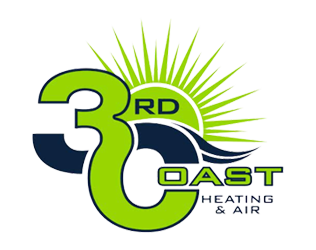12 Effective Strategies to Lower Your HVAC Energy Bill and Save Money
Saving money on your HVAC (heating, ventilation, and air conditioning) energy bill can be achieved through various strategies. Here are some tips to help you reduce your HVAC-related energy costs:
Adjust your thermostat: Set your thermostat to an energy-efficient temperature. In the winter, lower it a few degrees and wear warmer clothing. In the summer, raise it a few degrees and use fans to supplement cooling.
Use a programmable thermostat: Install a programmable thermostat to automatically adjust temperatures based on your schedule. This way, you can optimize energy usage when you're away from home or asleep.
Maintain HVAC equipment: Regularly maintain your HVAC system by cleaning or replacing filters, checking for leaks, and scheduling professional inspections. Well-maintained equipment operates more efficiently and helps save energy.
Seal air leaks: Inspect your home for air leaks around windows, doors, and other openings. Use weatherstripping, caulk, or other appropriate materials to seal gaps, preventing conditioned air from escaping and reducing the workload on your HVAC system.
Insulate your home: Ensure your home is adequately insulated to minimize heat transfer. Good insulation helps maintain desired temperatures, reducing the strain on your HVAC system and lowering energy consumption.
Utilize natural ventilation: Open windows and use natural ventilation during moderate weather conditions to reduce reliance on air conditioning or heating. Take advantage of cool breezes or warm sunlight to regulate indoor temperatures.
Optimize air circulation: Keep vents and registers clean and unobstructed. Arrange furniture and objects in a way that allows unrestricted airflow, ensuring efficient distribution of conditioned air throughout your home.
Use ceiling fans: In conjunction with your HVAC system, utilize ceiling fans to enhance air circulation and create a more comfortable environment. Fans can help you feel cooler in summer and redistribute warm air in winter.
Use blinds, curtains, or shades: During hot weather, close blinds, curtains, or shades to block direct sunlight, reducing the need for air conditioning. In colder months, open them during the day to let sunlight naturally warm your home.
Avoid heat-generating activities: Minimize activities that generate excess heat, such as using the oven or dryer during the hottest parts of the day. Opt for energy-efficient appliances and consider using a clothesline to air-dry laundry.
Schedule regular HVAC maintenance: Schedule professional HVAC maintenance to ensure optimal performance, efficiency, and longevity of your system. Trained technicians can identify potential issues and help you keep your HVAC system in top shape.
Consider energy-efficient upgrades: If your HVAC system is outdated, consider investing in energy-efficient models. Look for Energy Star-certified units, which meet strict energy efficiency standards and can save you money in the long run.
Remember that each home is unique, and some tips may be more applicable to your situation than others. By implementing these energy-saving practices, you can reduce your HVAC energy bill while maintaining a comfortable indoor environment.
